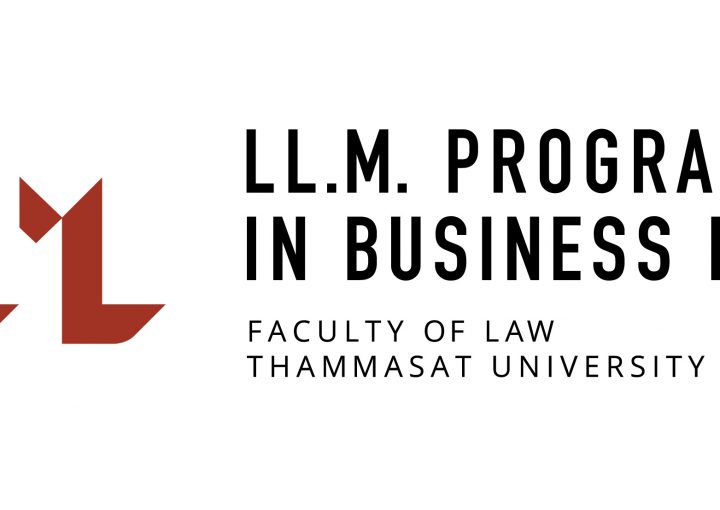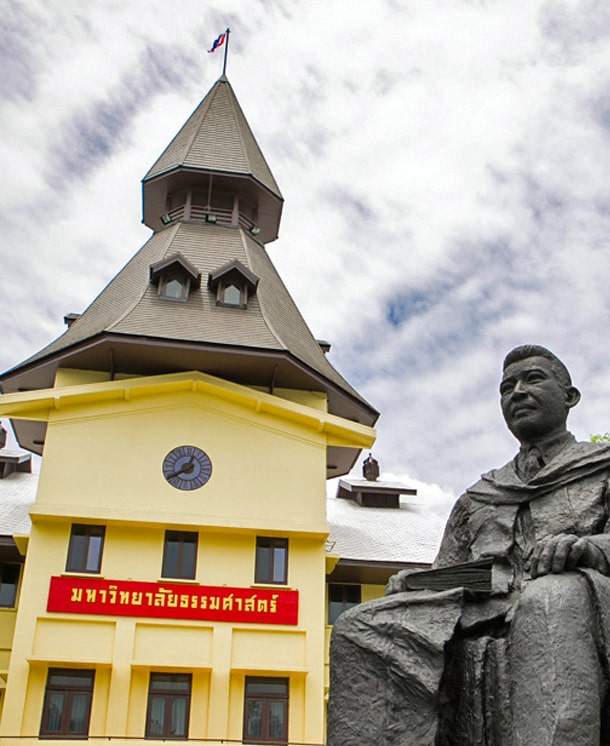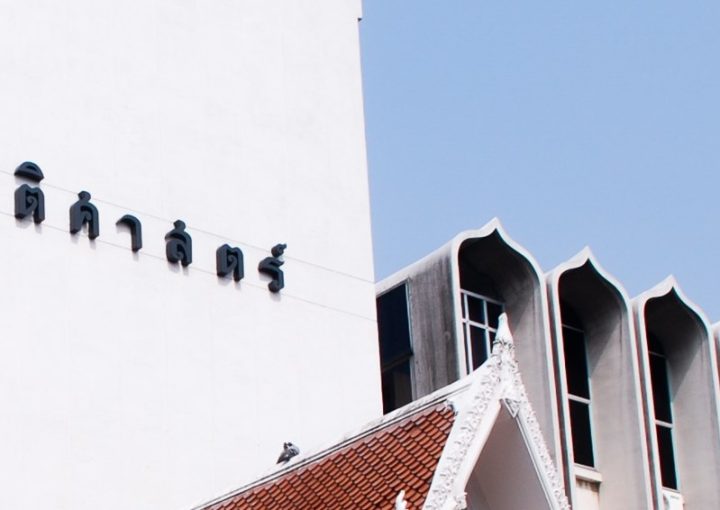
International Programs
Faculty of Law Thammasat University
LL.B. Admission
Bachelor of Laws Program in Business Law (International Program) Academic Year 2021
LL.M. Admission
Master of Laws Program in Business Law (English Program) Academic Year 2021
TU Thammasat University
About us
Know more about us.
"....Our Faculty, the largest law school in the nation in terms of staff and resources, now has a teaching staff that is a blend of academics and legal professionals who are exceptionally qualified and highly regarded in their legal practice areas. Many of us have trained abroad, and we also attract international lecturers who come to the Faculty to teach and research. This mix of legal scholars, practising lawyers, and foreign experts bring to the Faculty of Law a depth and range of experience unmatched by any other law school...."
Legal disciplines.
Thammasat University International Programs in Business Law
The Faculty of Law, Thammasat University is located within the old city of Bangkok, known as Rattanakosin Island, which was formed by the loop of the Chao Phraya River and adjoining canals. Since the establishment of Bangkok as the capital city, the Island has been used to accommodate the Grand Palace, royal palaces, and government buildings making it the center of power in the country. Several major political changes affecting Thai history have taken place within this area. Thammasat University, especially the Faculty of Law, is regarded as one of the active players
The origins of the Faculty of Law can be traced back to the country’s first law school, the Law School of the Ministry of Justice, which was established in 1897 by Prince Rabi, an Oxford-educated son of King Chulalongkorn (King Rama V) upon the advice of Gustave Rolin-Jacquemyns, then General Advisor to King Chulalongkorn. In 1933, it was annexed to Chulalongkorn University. Only a year later, Pridi Banomyong, the civilian leader of the 1932 Revolution, founded Wicha Thammasat Lae Kan Mueang University, which took over the Law School from Chulalongkorn University. In the beginning, the newly-established university focused primarily on law courses in addition to offering courses in a few other disciplines, namely economics, accountancy and political science. In 1949, the university’s name was shortened by an act of parliament to what it is today, due to the junta’s belief that the term “Lae Karn Mueang” (“and Politics”) might lead students to pay too much attention to politics and cause recurring political trouble for the government. In the same year, several other humanities and social science faculties were established within Thammasat University.
As the country’s oldest faculty of law, it has played a significant role in shaping Thai ideologies, politics, legal education and the judicial system.
The Faculty’s students and members have participated in a number of struggles against dictatorship and injustice in Thai society. The student movement to rally against and overthrow a dictatorial regime in 1973 was centered at Thammasat University. A similar struggle occurred in 1976 which ended with bloodshed when a large number of students were massacred on campus. However, the quest for democracy among students was not abandoned as they again joined a democratic movement in marching along the streets of Bangkok to topple another dictatorial regime in 1992.
The Faculty of Law’s ideologies are reflected in the activities carried out not only by its students but also by its graduates who have held a large number of key positions within both the public and private sectors. For instance, almost all of the Presidents of the Supreme Court of Thailand graduated from the Faculty of Law, which has also produced more Thai Prime Ministers than any other higher-education institution in the country. At one time, the heads of the three branches of government - the Prime Minister, the Speaker of the House of Representatives, and the President of the Supreme Court - were all former graduates of the Faculty of Law.
Thammasat University consists of two main campuses: the Tha Phra Chan Campus and the Rangsit Campus. The latter, established in 1985, is now developing into a university town. Most Thammasat students are based at the Rangsit Campus. Only a few undergraduate programs, including the International LL.B. Program in Business Law, are operated at the Tha Phra Chan Campus, which is mainly used to accommodate postgraduate and international programs. Despite the distance, students of both campuses are socially and academically connected.



Read our latest events
We embrace holistic development and support for employees the aim of being a first-choice employer within our sectors. Our process applies techniques



